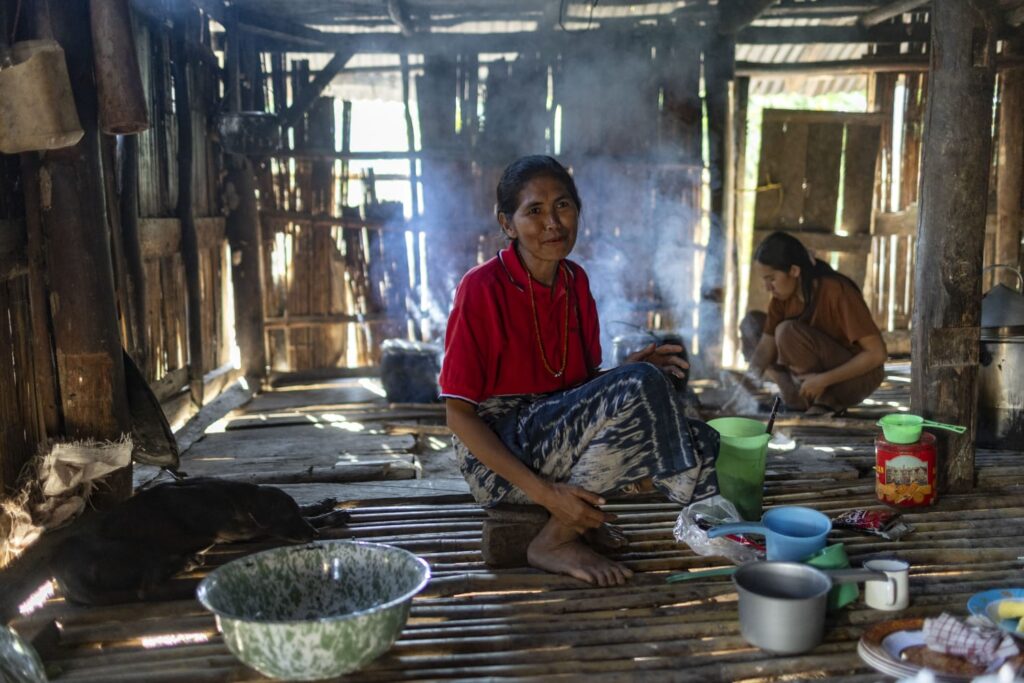The women in the indigenous community of Mbotutenda Village, Ende, East Nusa Tenggara are hereditary field managers. They plant tubers and vegetables which are the staple foods to meet daily needs.
In practice, women and men have equal roles in land management. Indigenous women also have a role in clearing land, planting, and harvesting the field's produce. However, women have a greater role in managing these food ingredients into products ready for consumption by the family.
These tubers and vegetables are the daily staple foods for the indigenous people of Mbotutenda Village. They plant to meet the needs of their community. This shows that knowledge of natural resource management in their area supports the realization of food security. Which ultimately makes them able to survive, especially in the midst of the COVID-19 pandemic.
This is also supported by the findings of the baseline data collection process currently being carried out by KEMITRAAN. The pandemic conditions that have occurred for approximately two years have not had a significant impact on the fulfillment of food for indigenous peoples. However, they have proven to be able to manage the land which is their source of life.
The role of indigenous women is to maintain and develop collective knowledge that is passed down from generation to generation in terms of farming. We found that the methods of managing cloves and coffee carried out by indigenous people are still very traditional, starting from drying to processing coffee beans. Cloves and coffee are two main commodities that have economic value for the indigenous community of Mbotutenda Village. Therefore, assistance is needed for indigenous women to provide significant economic input.
The above condition is one example of the importance of guaranteeing the rights of indigenous women in carrying out their roles fully in environmental management. What indigenous women do for the inheritance of knowledge is an effort in the framework of protection and sustainable management of indigenous areas. As well as support for subsistence that has a direct impact on food sovereignty and the economy of indigenous communities.
Indigenous communities are still loyal to the practice of traditional knowledge which enables them to survive because of their closeness to nature. Indigenous communities have an important role in protecting forests and the environment, this role is mostly held by indigenous women. Women have a role as agents of change as well as guardians of the preservation of nature which is a source of livelihood for the community.
Environmental protection is important for indigenous communities because the environment is a source of livelihood for hundreds of indigenous peoples. This proves that women are not only responsible for domestic affairs, but also contribute to the economic, social, and political spheres both in the family and the community they are in. They not only manage kitchen affairs, but also have an important role in influencing customary decisions in order to voice their voices. However, their limited access often makes their voices unheard.
Basically, indigenous women have traditional ecological knowledge passed down from generation to generation, starting from resource management, forest conservation, agriculture and livelihoods. This shows that they have an important role in environmental management and preserving the environment that is a source of livelihood. And often when climate change or environmental destruction occurs, women are the ones who are most affected compared to other community groups.
Environmental issues and indigenous women are two things that are interrelated and impact each other. Climate change has a big impact and challenges, especially the impact on those who work in the natural resources sector. Women's vulnerability in facing climate change occurs because women have limited access and control over the environment, including in terms of decision making.
It is hoped that by providing guarantees for indigenous women to participate in spaces for expressing opinions, as well as recognition and protection for the rights of indigenous women, both as individuals and collectively, it will be able to affirm the recognition of the role of indigenous women as owners of a wealth of traditional knowledge that can become one of the social, economic and cultural modalities of the nation.
*This article was also published at https://www.konde.co/2023/02/yang-bisa-kamu-pelajari-dari-perempuan-adat-sebagai-pelindung-hutan-dan-lingkungan/


